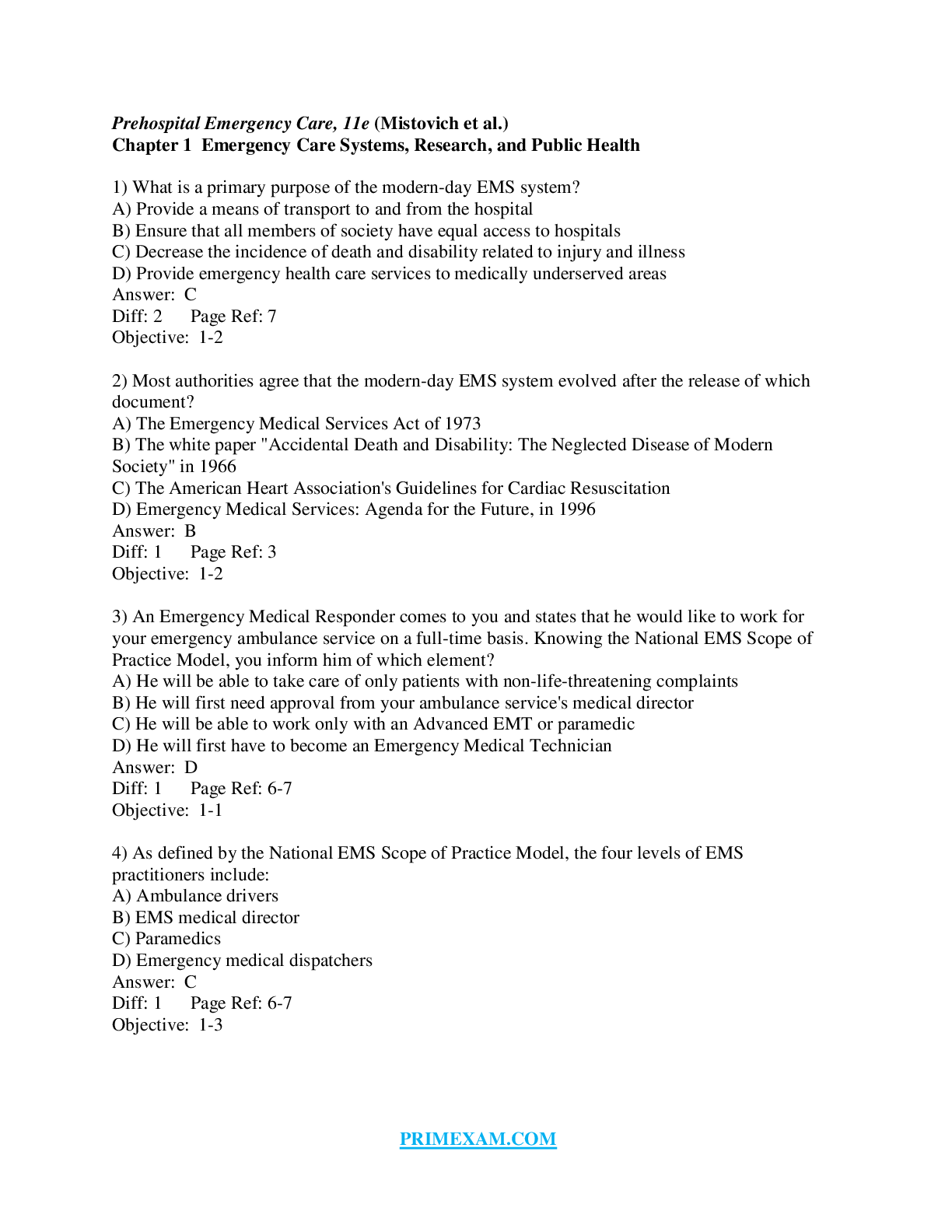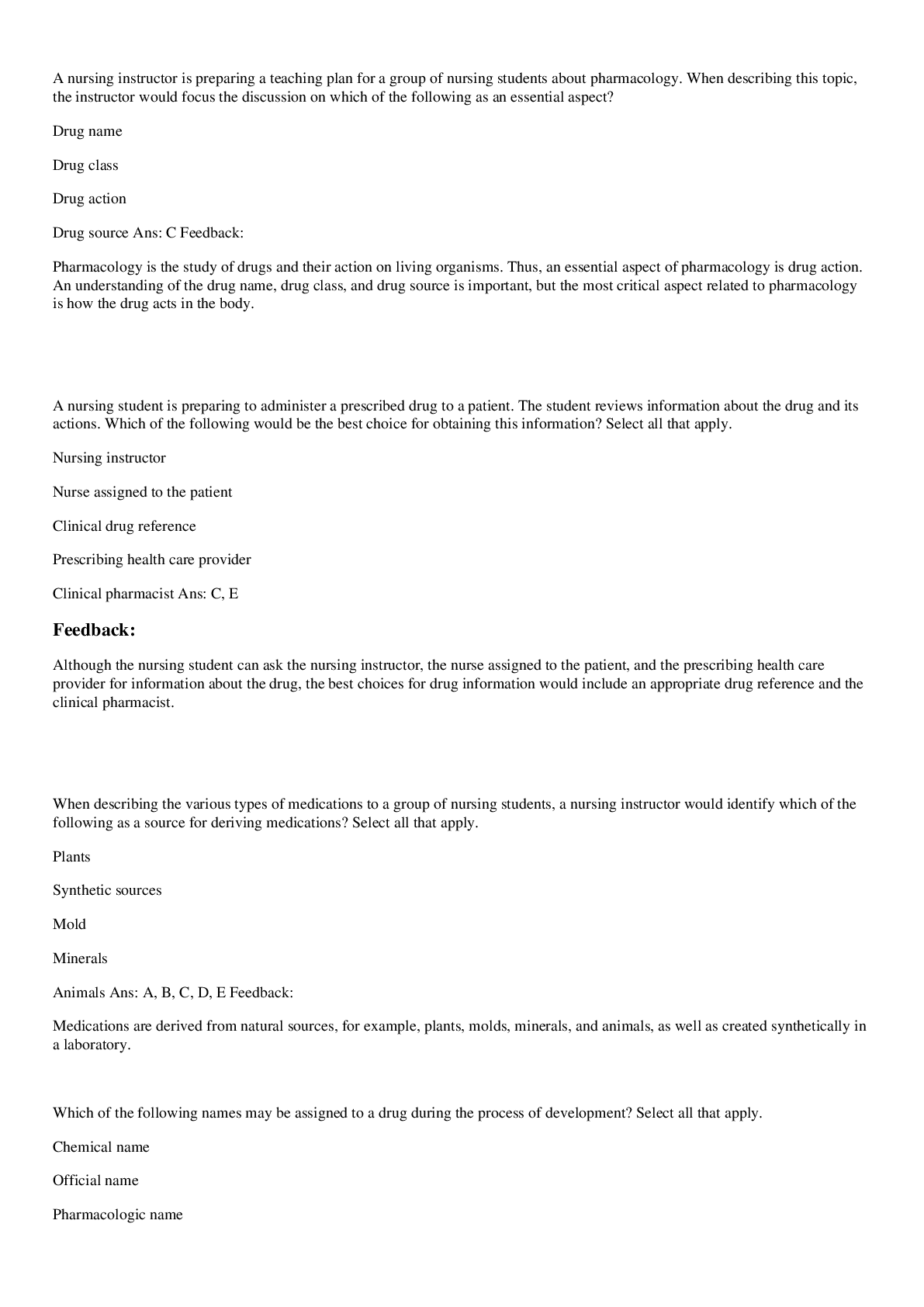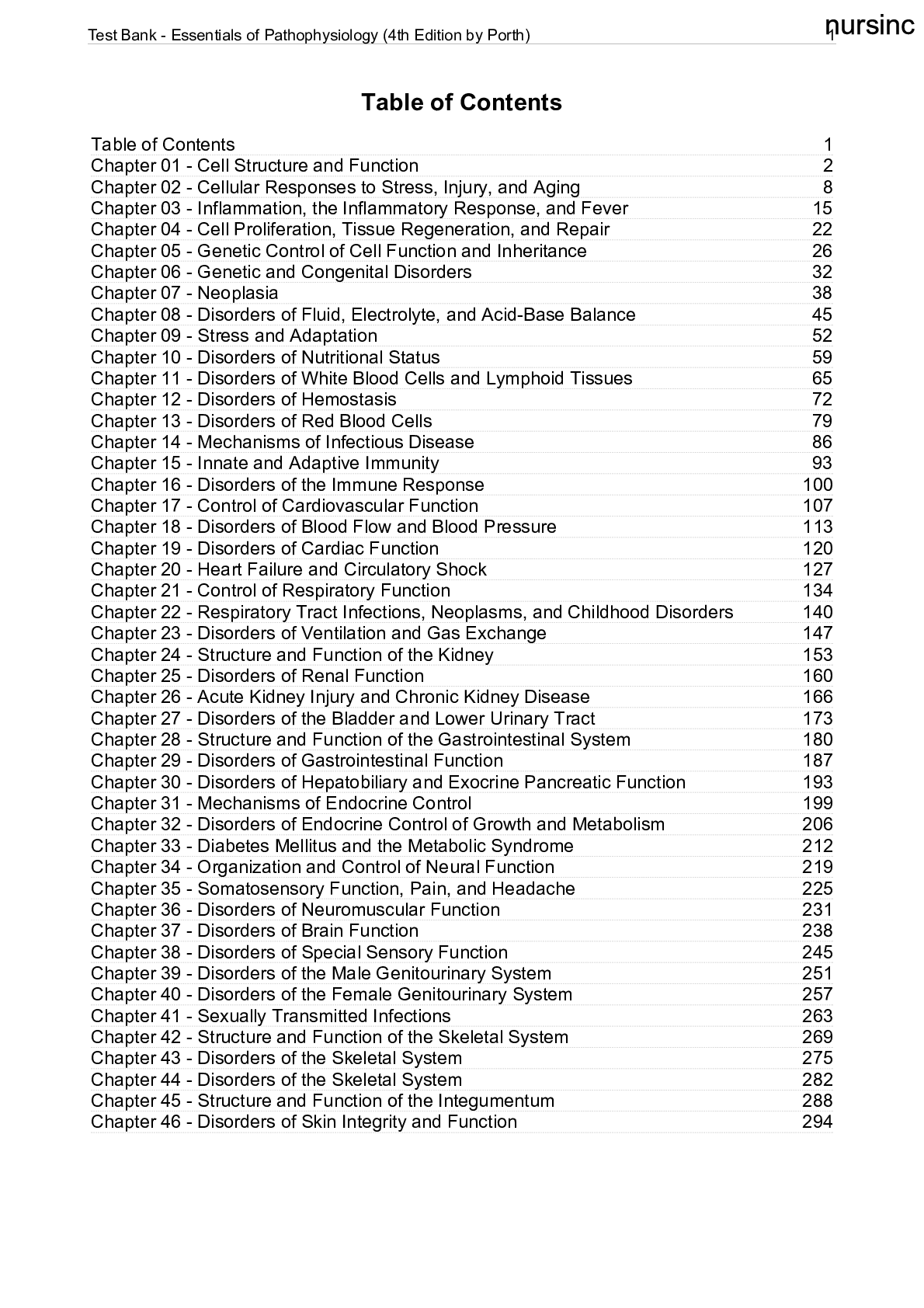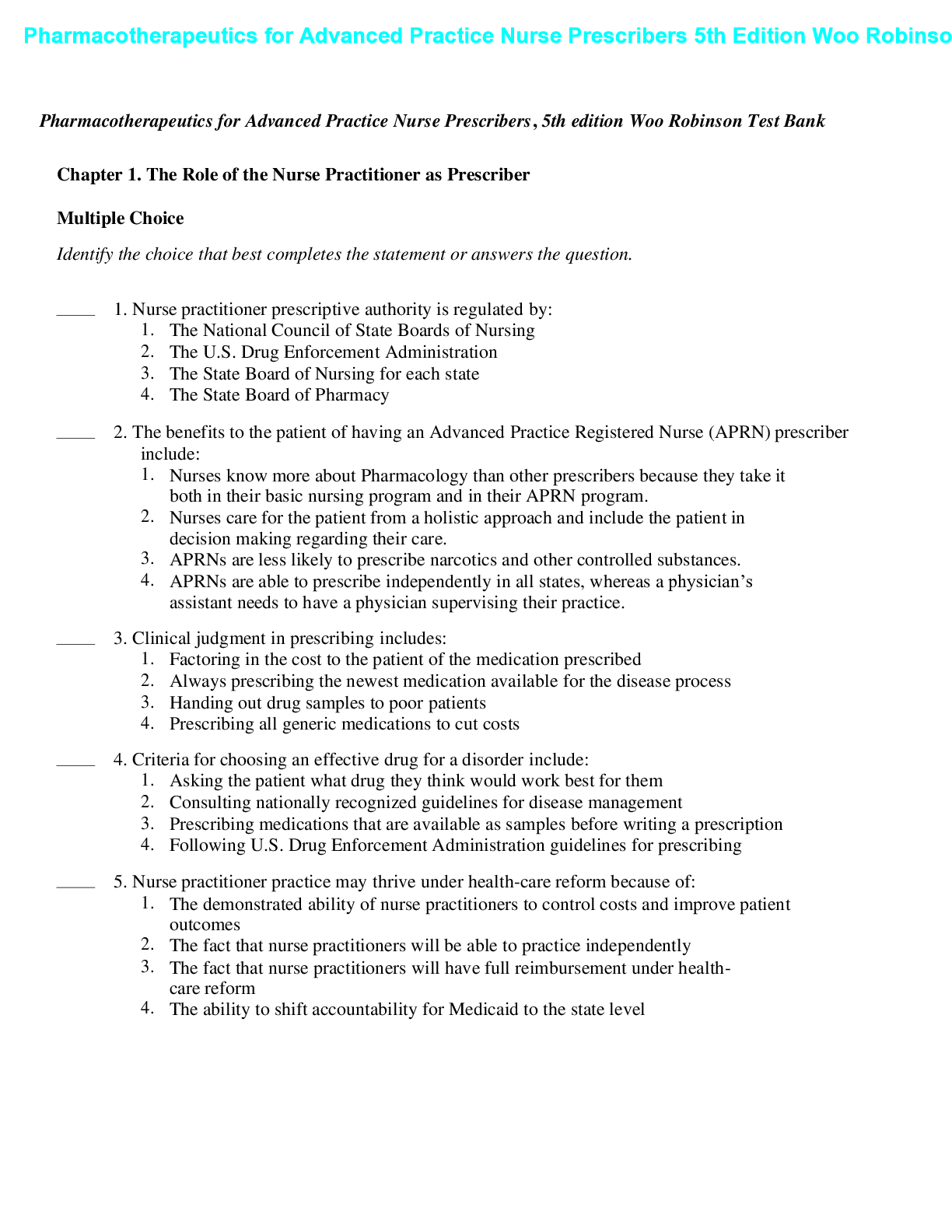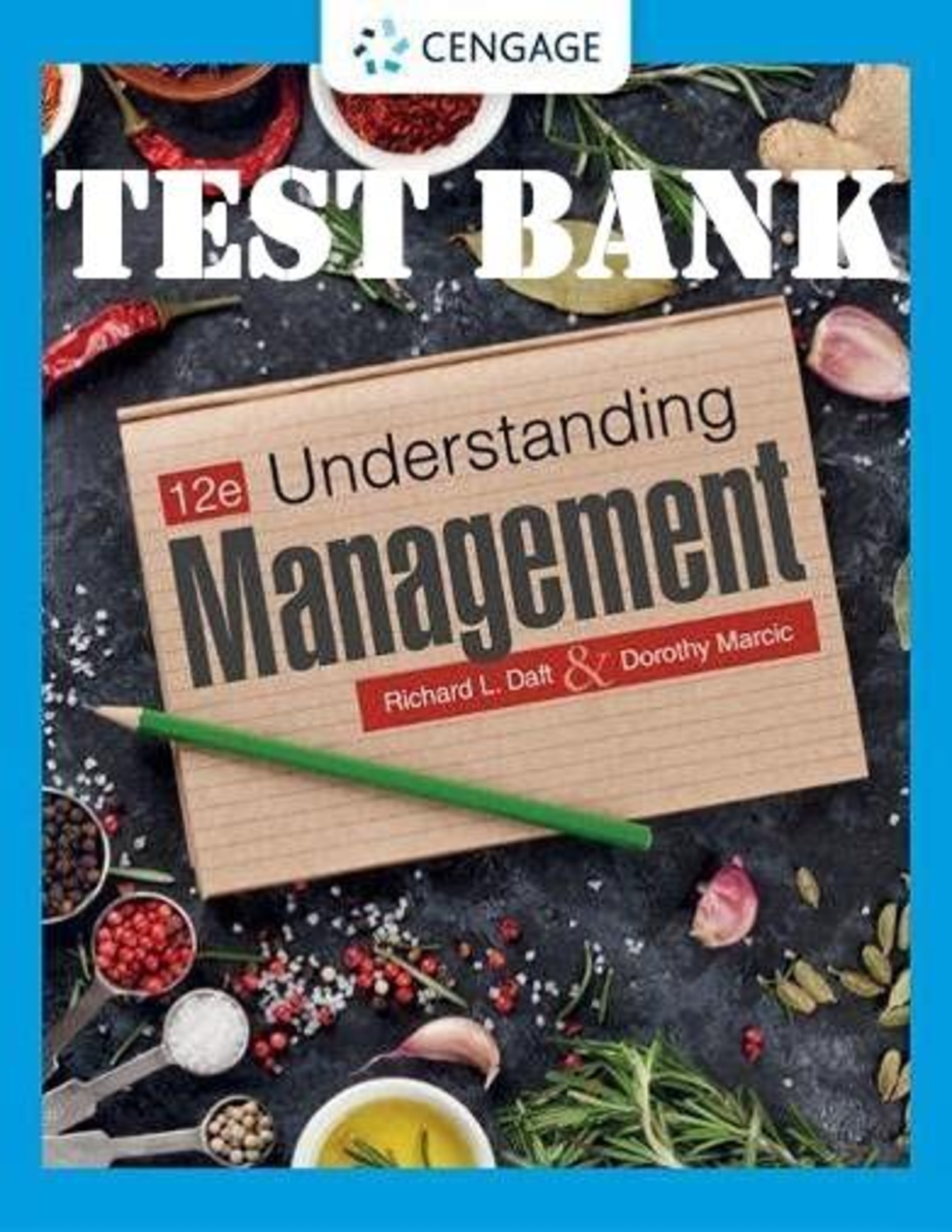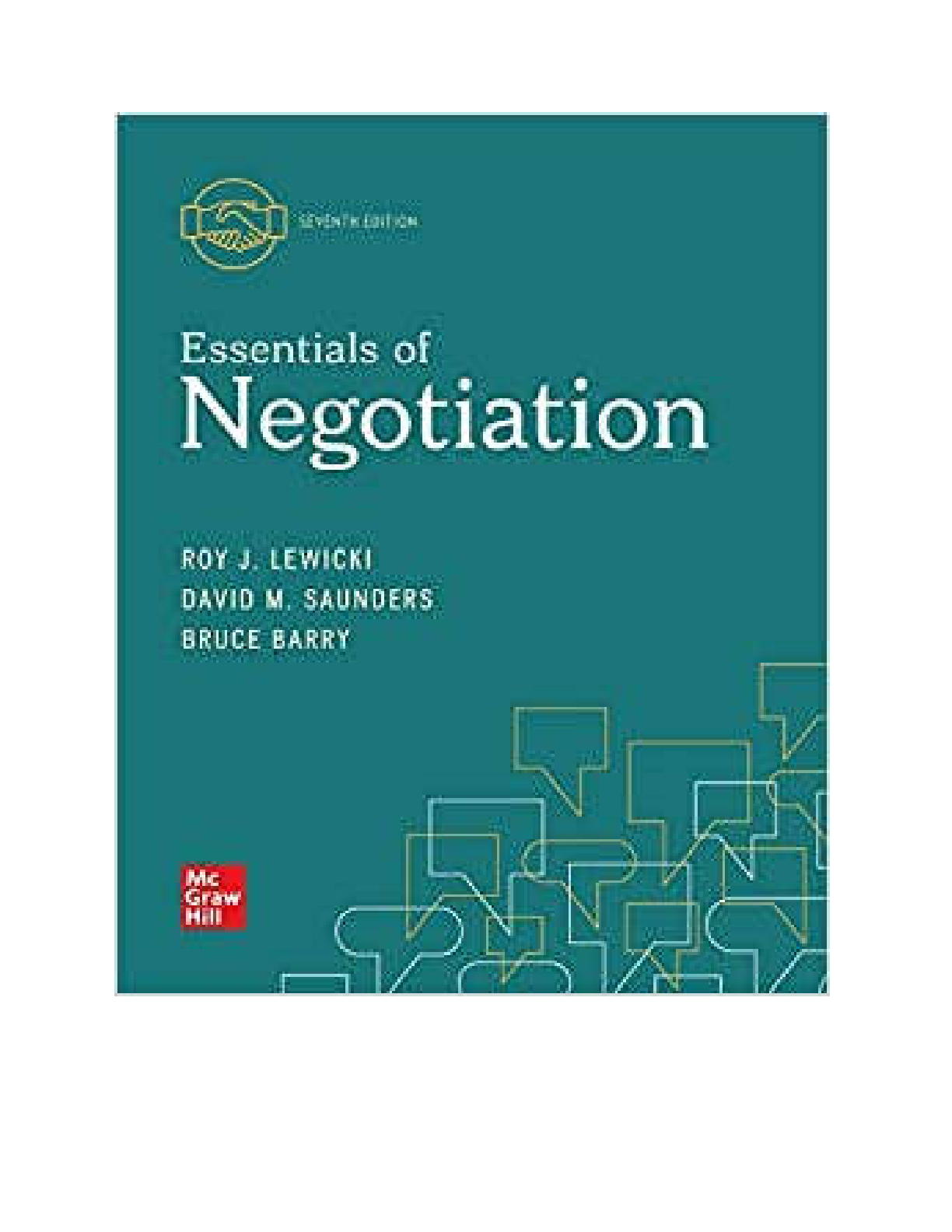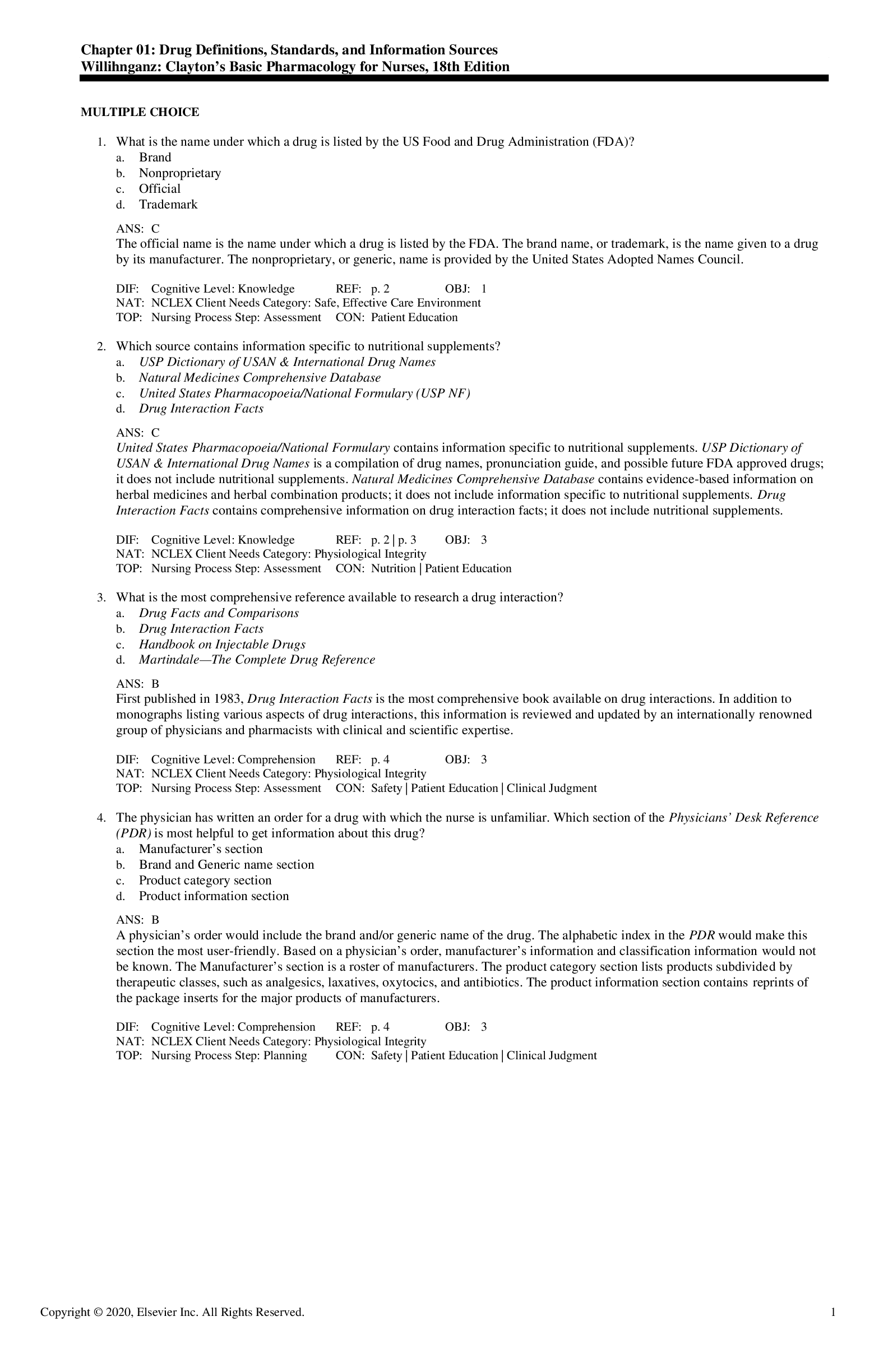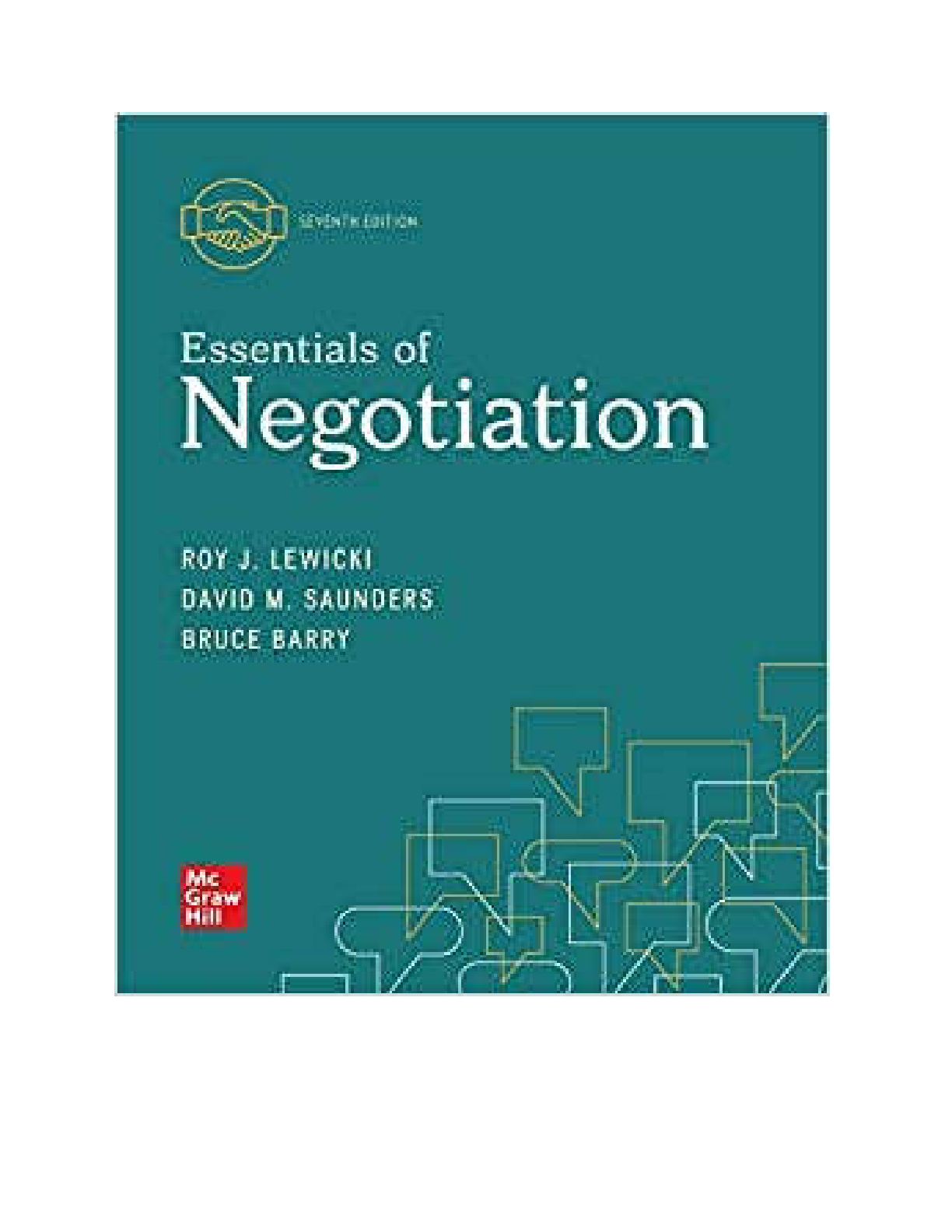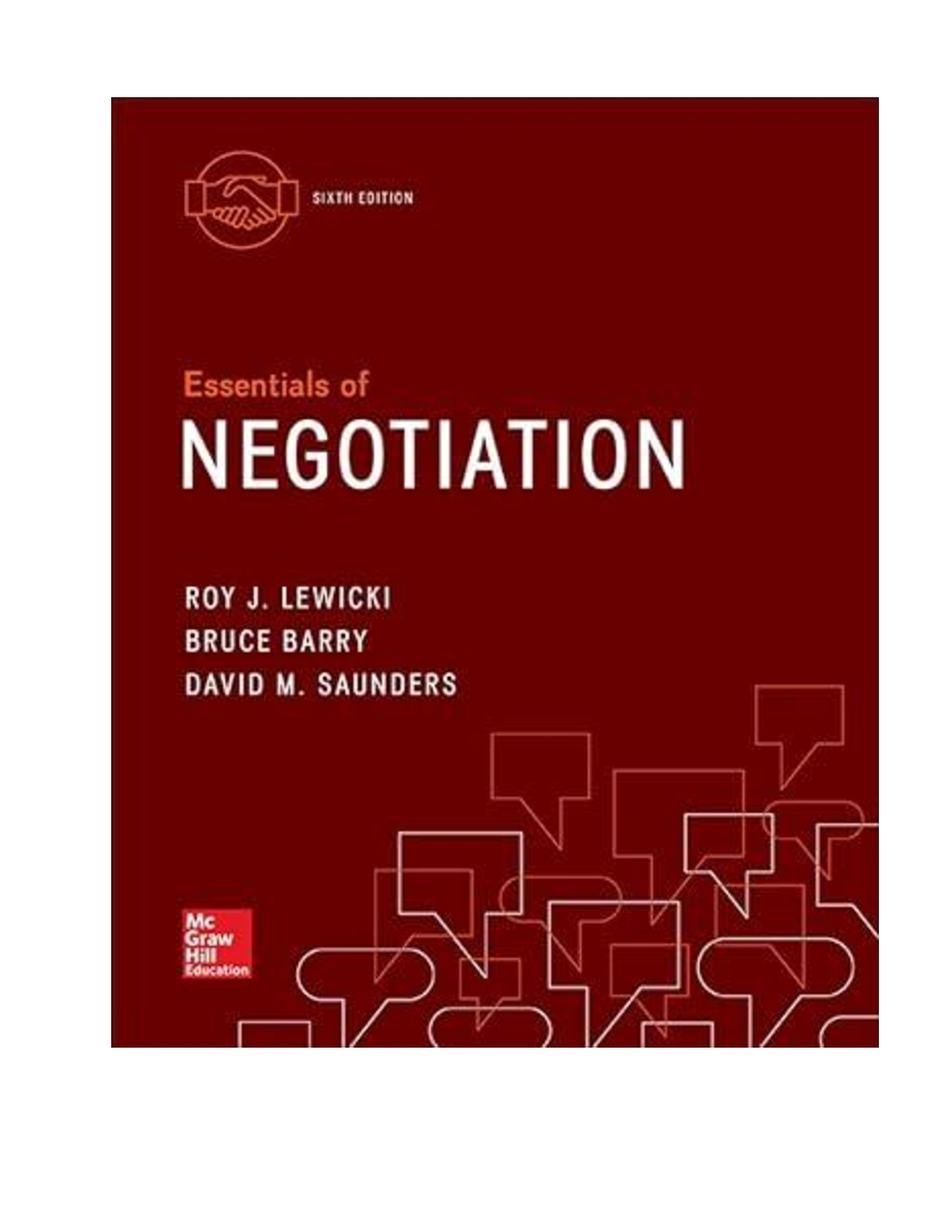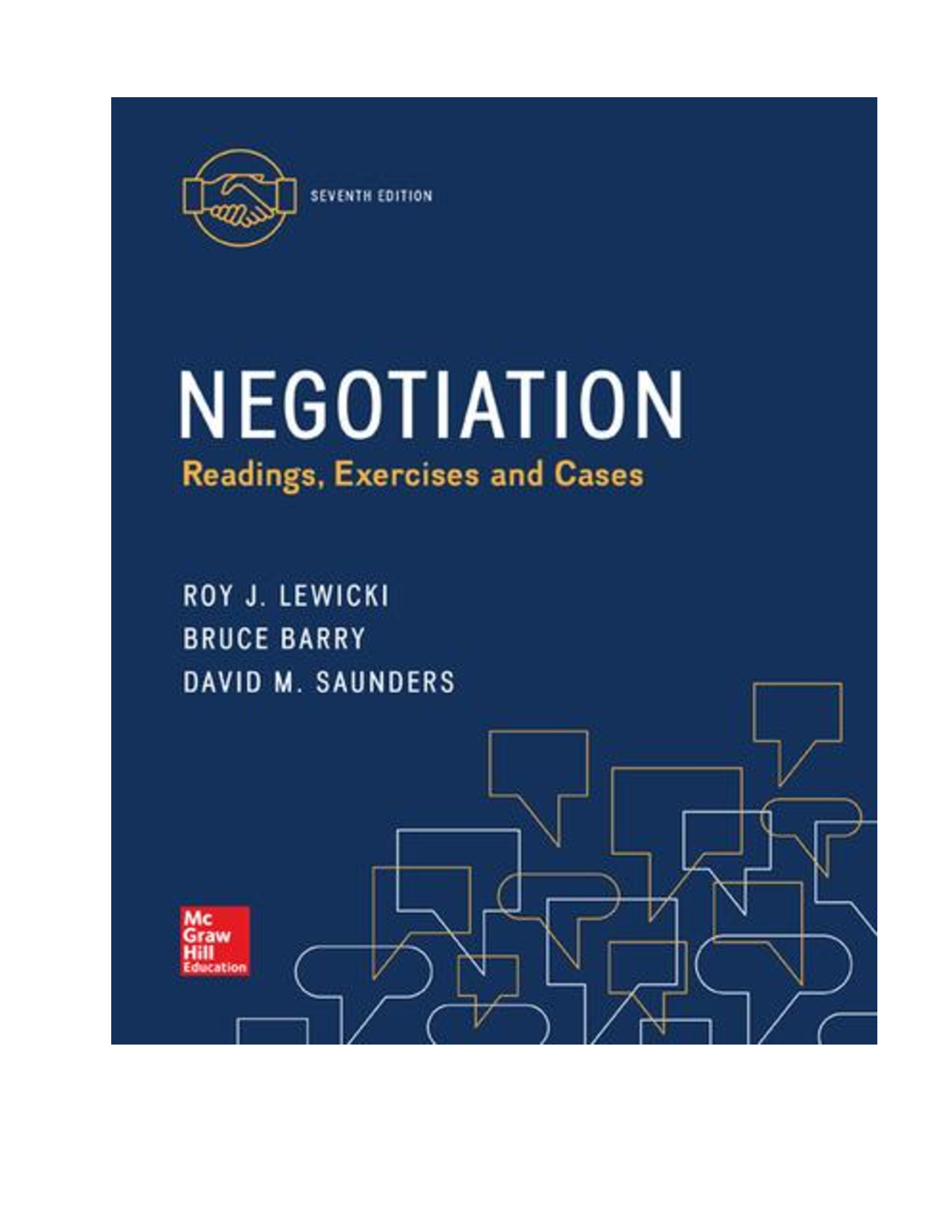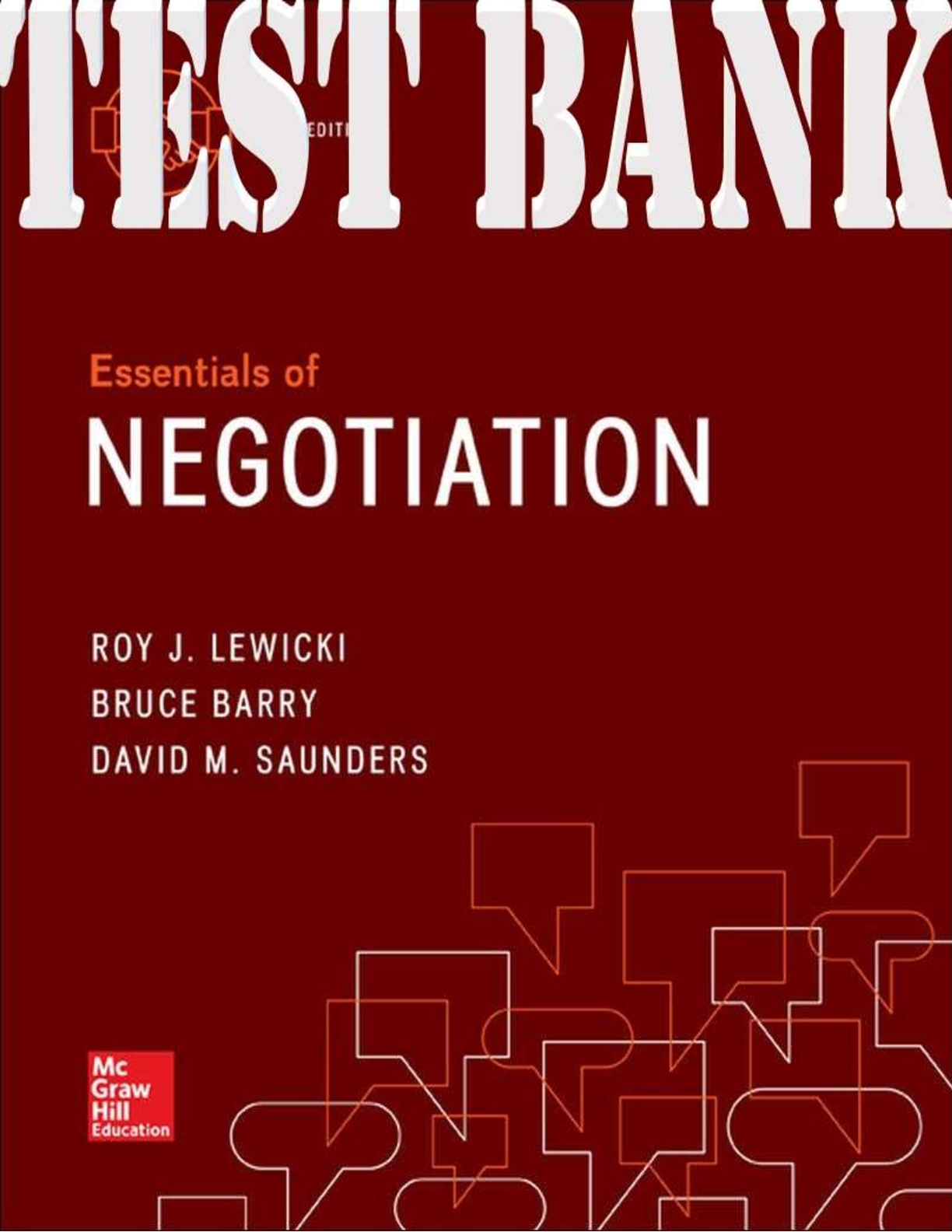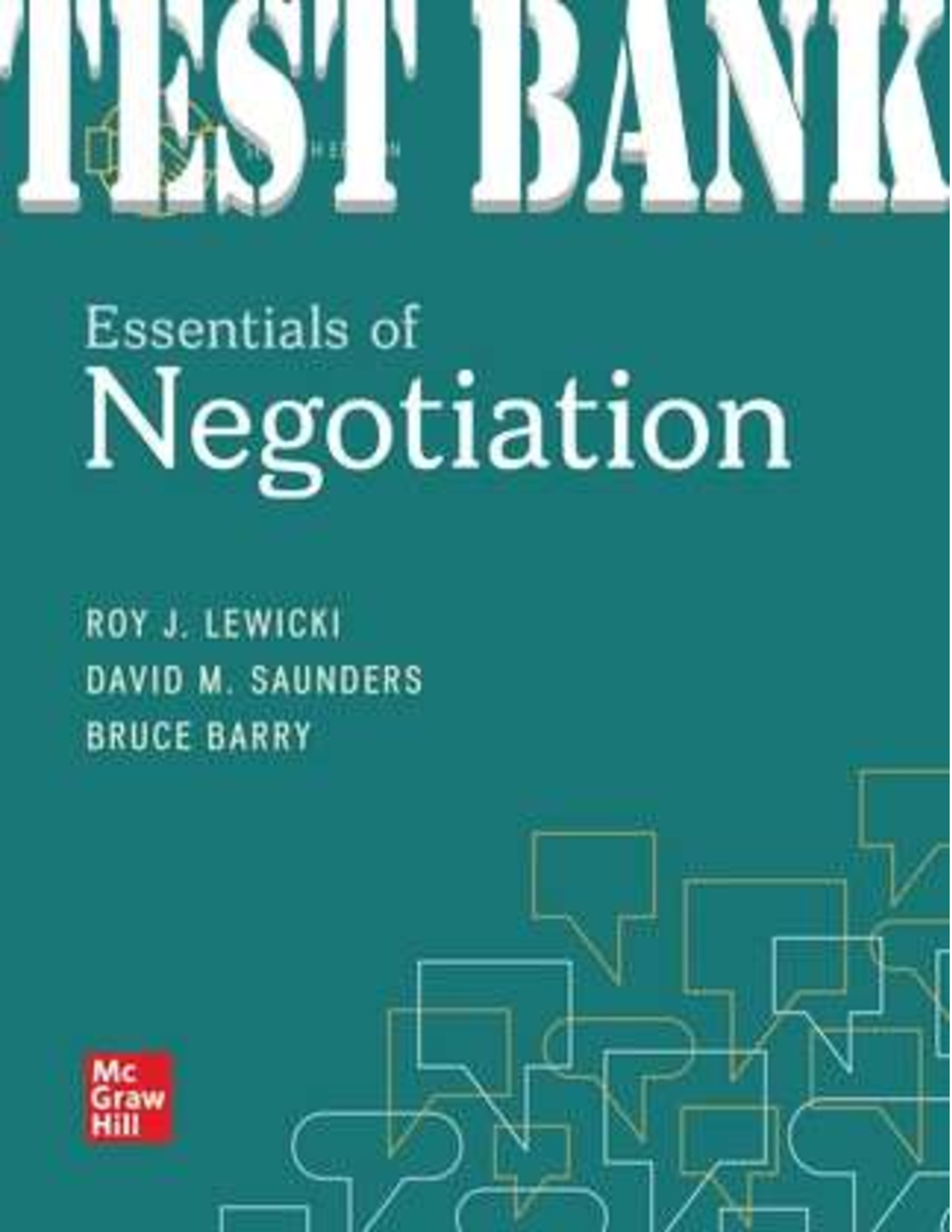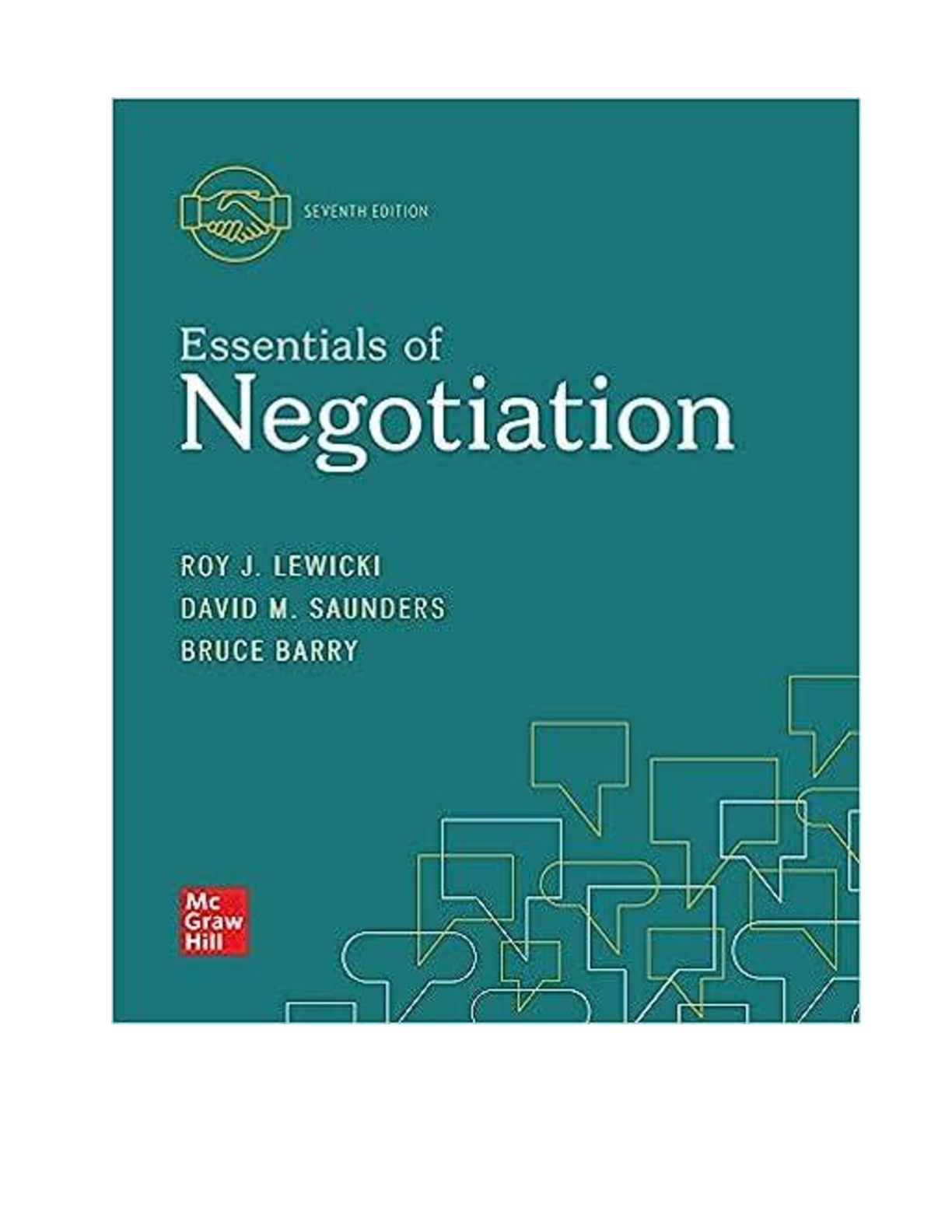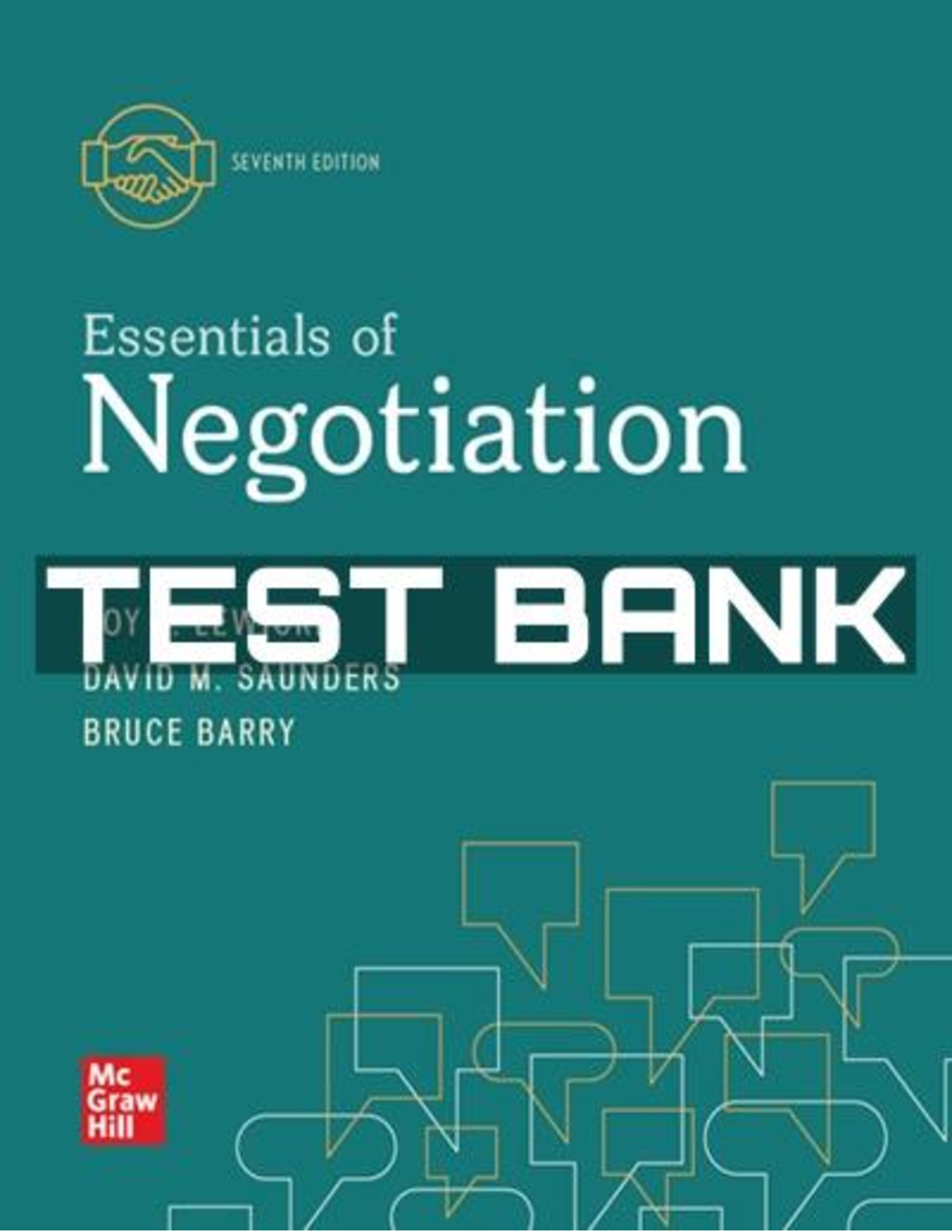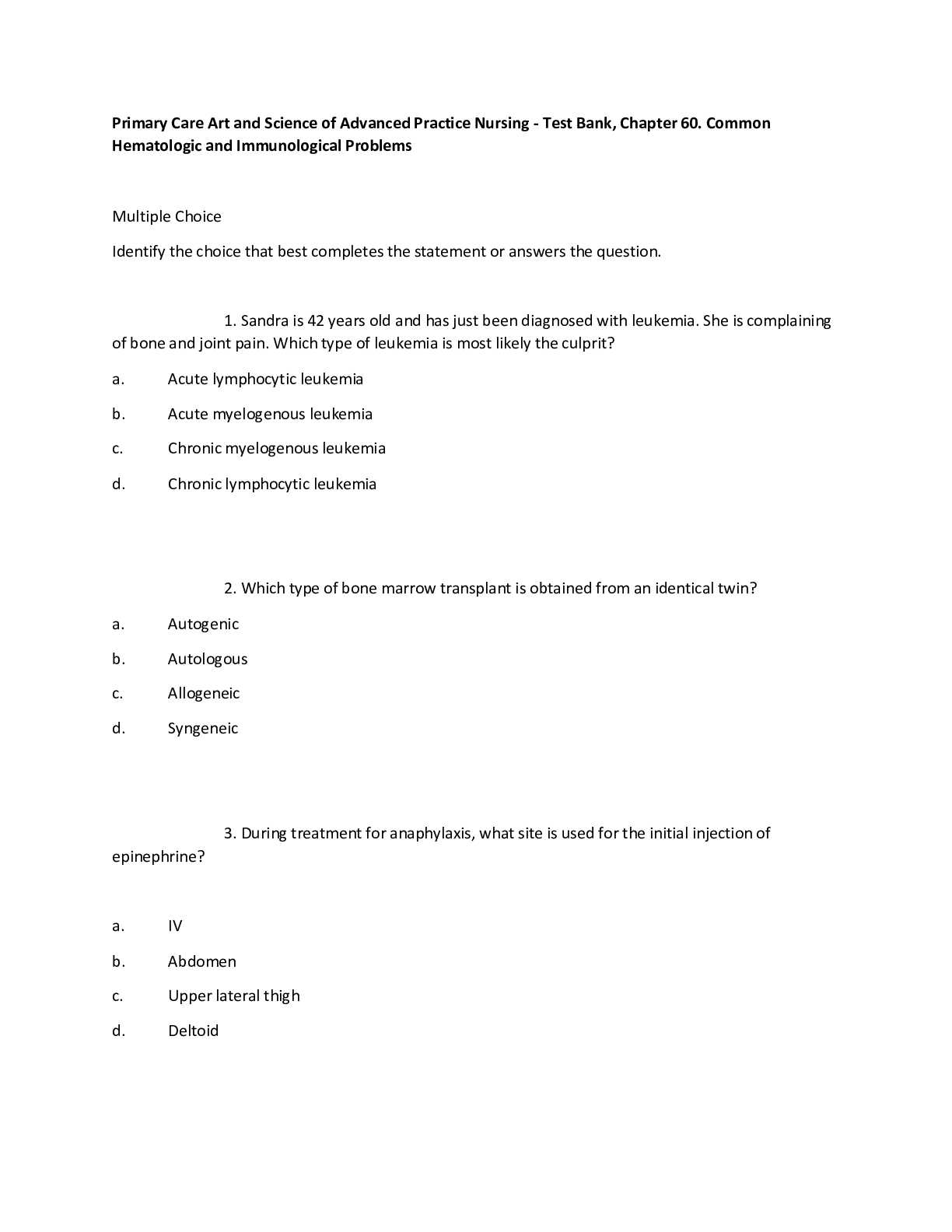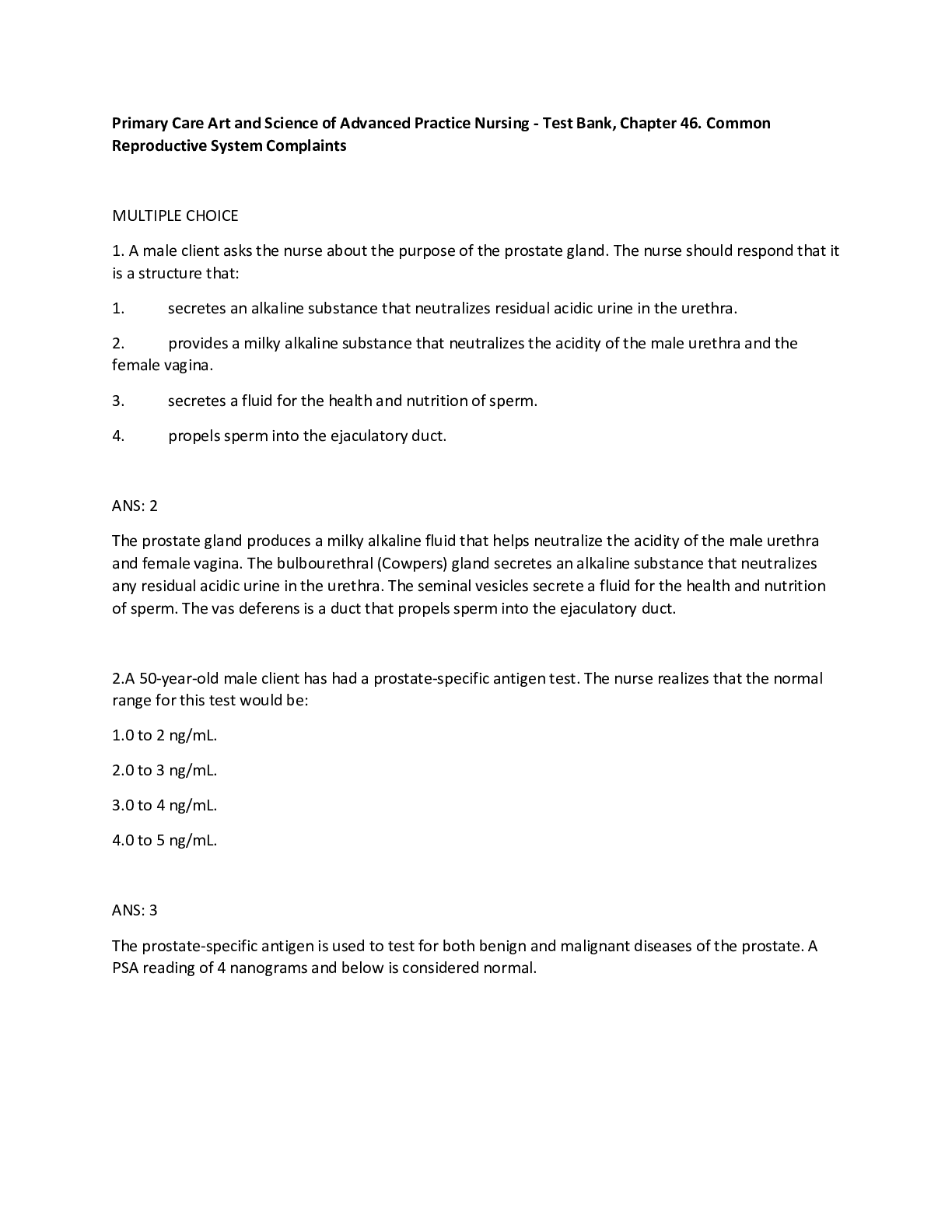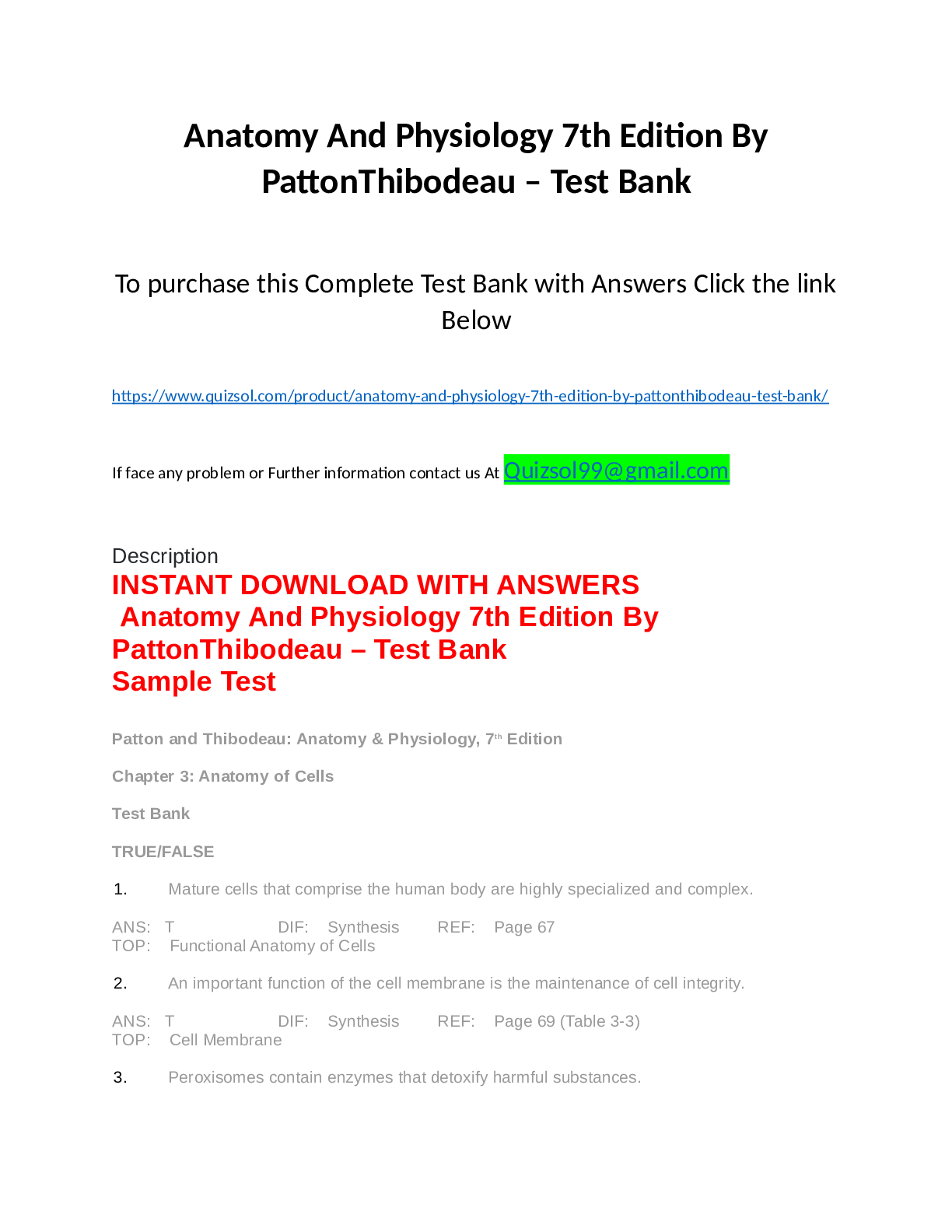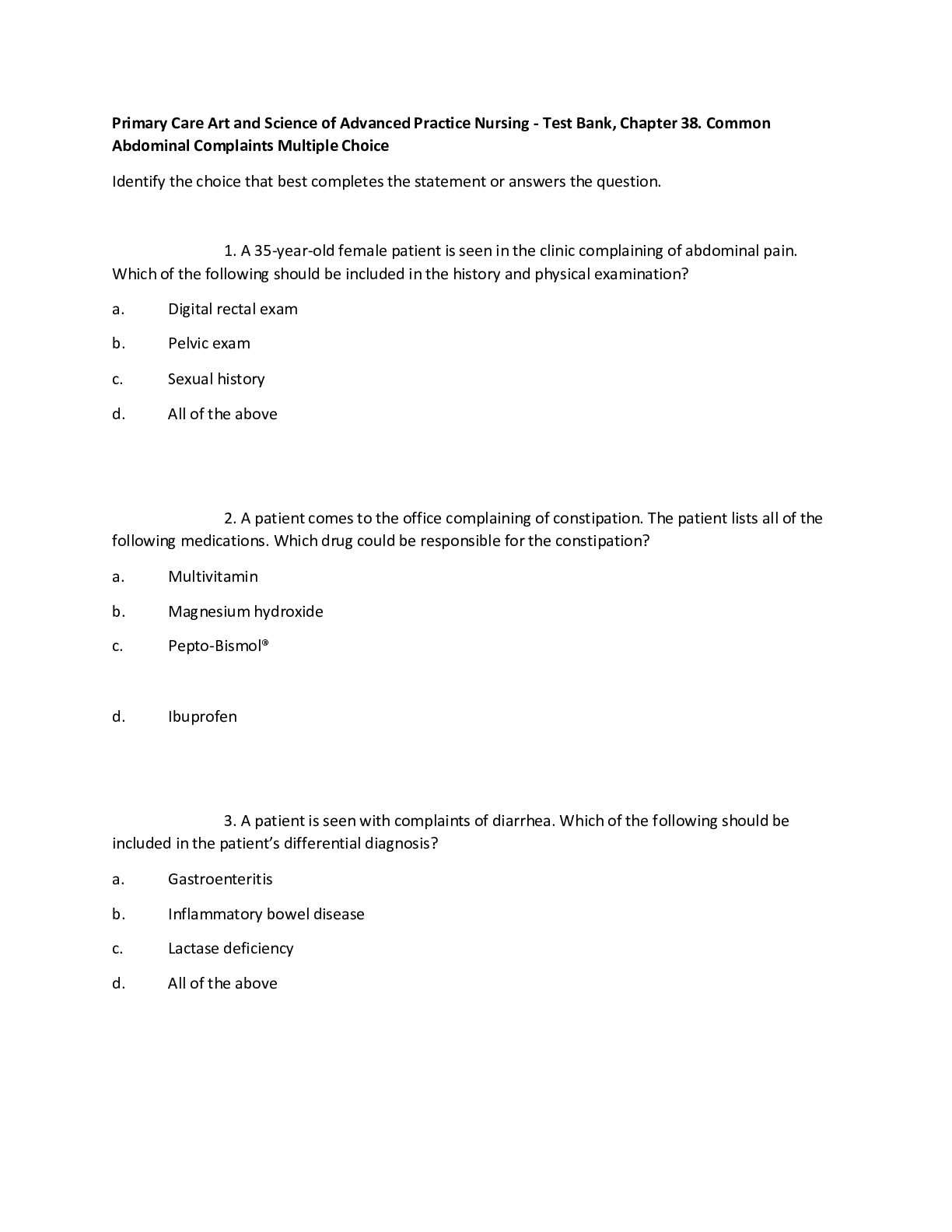Communication > TEST BANK > Negotiation Readings, Exercises, and Cases - Test Bank for seventh edition by Roy J. Lewicki, Bruce (All)
Negotiation Readings, Exercises, and Cases - Test Bank for seventh edition by Roy J. Lewicki, Bruce Barry (Answer Key at every chapter end)
Document Content and Description Below
Negotiation Readings, Exercises, and Cases - Test Bank for seventh edition by Roy J. Lewicki, Bruce Barry (Answer Key at every chapter end) Negotiation Readings, Exercises, and Cases - Test Bank for ... seventh edition by Roy J. Lewicki, Bruce Barry Chapter 01 The Nature of Negotiation Negotiation Readings, Exercises, and Cases - Test Bank for seventh edition by Roy J. Lewicki, Bruce Barry, Negotiation Readings, Exercises, and Cases - Test Bank for seventh edition by Roy J. Lewicki, Bruce Barry, Fill in the Blank Questions 1. People ____________ all the time. _____________________ ___________________ 2. The term ____________ is used to describe the competitive, win-lose situations such as haggling over price that happens at yard sale, flea market, or used car lot. ________________________________________ 3. Negotiating parties always negotiate by ____________. ________________________________________ 4. There are times when you should _________ negotiate. ________________________________________ 5. Successful negotiation involves the management of ____________ (e.g., the price or the terms of agreement) and also the resolution of ____________. ________________________________________1-2 Copyright © 2015 McGraw-Hill Education. All rights reserved. No reproduction or distribution without the prior written consent of McGraw-Hill Education. 6. Independent parties are able to meet their own ____________ without the help and assistance of others. ________________________________________ 7. The mix of convergent and conflicting goals characterizes many ____________ relationships. ________________________________________ 8. The ____________ of people's goals, and the ____________ of the situation in which they are going to negotiate, strongly shapes negotiation processes and outcomes. ________________________________________ 9. Whether you should or should not agree on something in a negotiation depends entirely upon the attractiveness to you of the best available _________. ________________________________________ 10. When parties are interdependent, they have to find a way to ____________ their differences. ________________________________________ 11. Negotiation is a ____________ that transforms over time. ________________________________________ 12. Negotiations often begin with statements of opening ____________. ________________________________________1-3 Copyright © 2015 McGraw-Hill Education. All rights reserved. No reproduction or distribution without the prior written consent of McGraw-Hill Education. 13. When one party accepts a change in his or her position, a ____________ has been made. ________________________________________ 14. Two of the dilemmas in mutual adjustment that all negotiators face are the dilemma of ____________ and the dilemma of ____________. ________________________________________ 15. Most actual negotiations are a combination of claiming and ____________ value processes. ________________________________________ 16. _______________________ is analyzed as it affects the ability of the group to make decisions, work productively, resolve its differences, and continue to achieve its goals effectively. ________________________________________ 17. Most people initially believe that ____________ is always bad or dysfunctional. ________________________________________ 18. The objective is not to eliminate conflict but to learn how to manage it to control the ____________ elements while enjoying the productive aspects. ________________________________________ 19. The two-dimensional framework called the _______________________ postulates that people in conflict have two independent types of concern. ________________________________________1-4 Copyright © 2015 McGraw-Hill Education. All rights reserved. No reproduction or distribution without the prior written consent of McGraw-Hill Education. 20. Parties who employ the ____________ strategy maintain their own aspirations and try to persuade the other party to yield. ________________________________________ True / False Questions 21. Negotiation is a process reserved only for the skilled diplomat, top salesperson, or ardent advocate for an organized lobby. True False 22. Many of the most important factors that shape a negotiation result do not occur during the negotiation, but occur after the parties have negotiated. True False 23. Negotiation situations have fundamentally the same characteristics. True False 24. A creative negotiation that meets the objectives of all sides may not require compromise. True False1-5 Copyright © 2015 McGraw-Hill Education. All rights reserved. No reproduction or distribution without the prior written consent of McGraw-Hill Education. 25. The parties prefer to negotiate and search for agreement rather than to fight openly, have one side dominate and the other capitulate, permanently break off contact, or take their dispute to a higher authority to resolve it. True False 26. It is possible to ignore intangibles, because they affect our judgment about what is fair, or right, or appropriate in the resolution of the tangibles. True False 27. When the goals of two or more people are interconnected so that only one can achieve the goal届such as running a race in which there will be only one winner届this is a competitive situation, also known as a non-zero-sum or distributive situation. True False 28. A zero-sum situation is a situation in which individuals are so linked together that there is a positive correlation between their goal attainments. True False 29. The value of a person's BATNA is always relative to the possible settlements available in the current negotiation, and the possibilities within a given negotiation are heavily influenced by the nature of the interdependence between the parties. True False1-6 Copyright © 2015 McGraw-Hill Education. All rights reserved. No reproduction or distribution without the prior written consent of McGraw-Hill Education. 30. In any industry in which repeat business is done with the same parties, there is always a balance between pushing the limit on any particular negotiation and making sure the other party届and your relationship with him届survives intact. True False 31. Remember that every possible interdependency has an alternative; negotiators can always say "no" and walk away. True False 32. The effective negotiator needs to understand how people will adjust and readjust, and how the negotiations might twist and turn, based on one's own moves and the others' responses. True False 33. The pattern of give-and-take in negotiation is a characteristic exclusive to formal negotiations. True False 34. In contrast, non-zero-sum or integrative or mutual gain Chapter 01 The Nature of Negotiation Answer Key Fill in the Blank Questions 1. (p. 3) People ____________ all the time. negotiate 2. (p. 3) The term ____________ is used to describe the competitive, win-lose situations such as haggling over price that happens at yard sale, flea market, or used car lot. bargaining 3. (p. 7) Negotiating parties always negotiate by ____________. choice 4. (p. 7) There are times when you should _________ negotiate. not 5. (p. 9) Successful negotiation involves the management of ____________ (e.g., the price or the terms of agreement) and also the resolution of ____________. tangibles; intangibles1-24 Copyright © 2015 McGraw-Hill Education. All rights reserved. No reproduction or distribution without the prior written consent of McGraw-Hill Education. 6. (p. 10) Independent parties are able to meet their own ____________ without the help and assistance of others. needs 7. (p. 11) The mix of convergent and conflicting goals characterizes many ____________ relationships. interdependent 8. (p. 11) The ____________ of people's goals, and the ____________ of the situation in which they are going to negotiate, strongly shapes negotiation processes and outcomes. interdependence; structure 9. (p. 11) Whether you should or should not agree on something in a negotiation depends entirely upon the attractiveness to you of the best available _________. alternative 10. (p. 13) When parties are interdependent, they have to find a way to ____________ their differences. resolve 11. (p. 13) Negotiation is a ____________ that transforms over time. process 12. (p. 14) Negotiations often begin with statements of opening ____________. positions1-25 Copyright © 2015 McGraw-Hill Education. All rights reserved. No reproduction or distribution without the prior written consent of McGraw-Hill Education. 13. (p. 14) When one party accepts a change in his or her position, a ____________ has been made. concession 14. (p. 15) Two of the dilemmas in mutual adjustment that all negotiators face are the dilemma of ____________ and the dilemma of ____________. honesty; trust 15. (p. 17) Most actual negotiations are a combination of claiming and ____________ value processes. creating 16. (p. 20) _______________________ is analyzed as it affects the ability of the group to make decisions, work productively, resolve its differences, and continue to achieve its goals effectively. Intragroup conflict 17. (p. 20) Most people initially believe that ____________ is always bad or dysfunctional. conflict 18. (p. 21) The objective is not to eliminate conflict but to learn how to manage it to control the ____________ elements while enjoying the productive aspects. destructive 19. (p. 22) The two-dimensional framework called the _______________________ postulates that people in conflict have two independent types of concern. dual concerns model1-26 Copyright © 2015 McGraw-Hill Education. All rights reserved. No reproduction or distribution without the prior written consent of McGraw-Hill Education. 20. (p. 24) Parties who employ the ____________ strategy maintain their own aspirations and try to persuade the other party to yield. contending True / False Questions 21. (p. 3) Negotiation is a process reserved only for the skilled diplomat, top salesperson, or ardent advocate for an organized lobby. FALSE 22. (p. 3) Many of the most important factors that shape a negotiation result do not occur during the negotiation, but occur after the parties have negotiated. FALSE 23. (p. 7) Negotiation situations have fundamentally the same characteristics. TRUE 24. (p. 7) A creative negotiation that meets the objectives of all sides may not require compromise. TRUE1-27 Copyright © 2015 McGraw-Hill Education. All rights reserved. No reproduction or distribution without the prior written consent of McGraw-Hill Education. 25. (p. 8) The parties prefer to negotiate and search for agreement rather than to fight openly, have one side dominate and the other capitulate, permanently break off contact, or take their dispute to a higher authority to resolve it. TRUE 26. (p. 9) It is possible to ignore intangibles, because they affect our judgment about what is fair, or right, or appropriate in the resolution of the tangibles. FALSE 27. (p. 11) When the goals of two or more people are interconnected so that only one can achieve the goal届such as running a race in which there will be only one winner届this is a competitive situation, also known as a non-zero-sum or distributive situation. FALSE 28. (p. 11) A zero-sum situation is a situation in which individuals are so linked together that there is a positive correlation between their goal attainments. FALSE 29. (p. 11) The value of a person's BATNA is always relative to the possible settlements available in the current negotiation, and the possibilities within a given negotiation are heavily influenced by the nature of the interdependence between the parties [Show More]
Last updated: 11 months ago
Preview 1 out of 788 pages
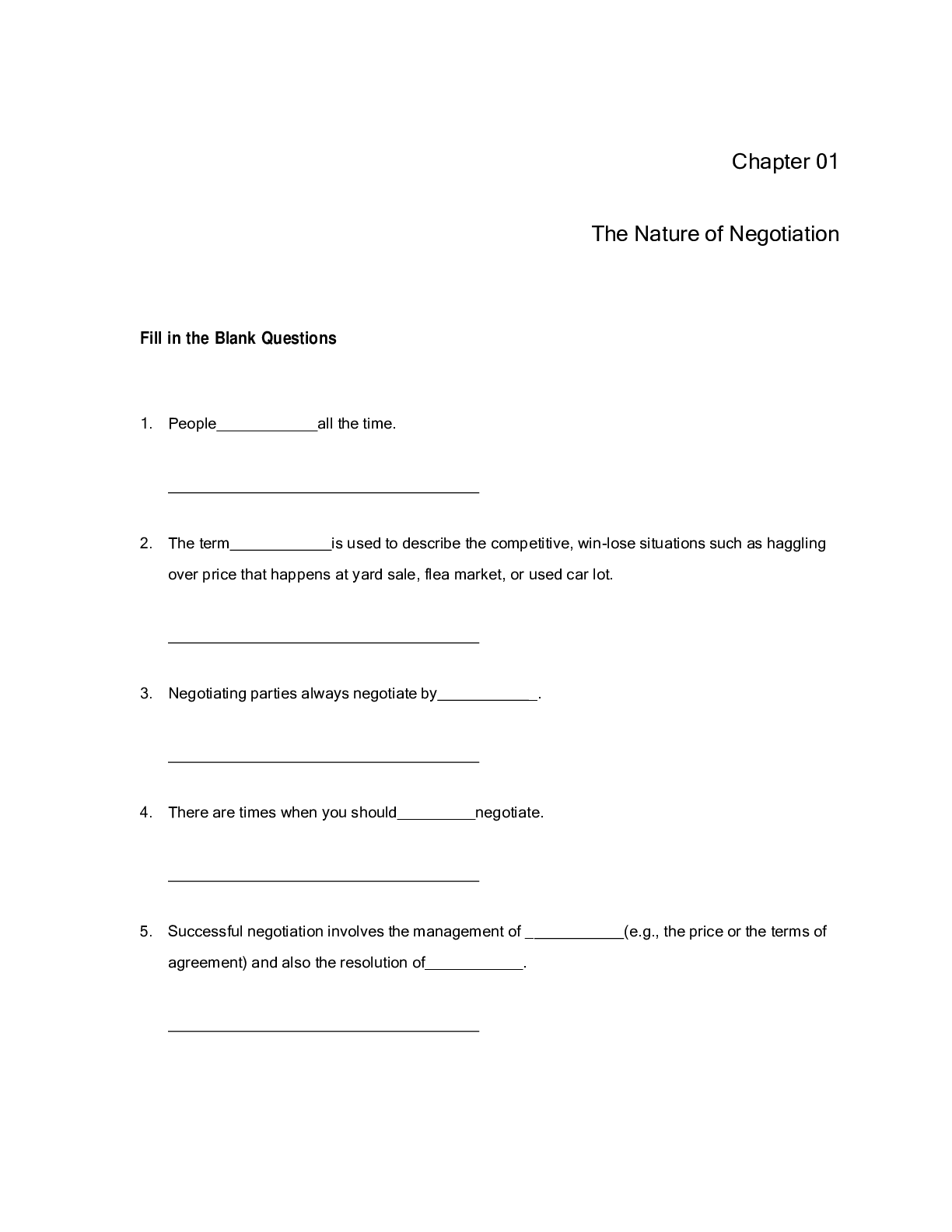
Reviews( 0 )
Document information
Connected school, study & course
About the document
Uploaded On
Sep 07, 2021
Number of pages
788
Written in
Additional information
This document has been written for:
Uploaded
Sep 07, 2021
Downloads
0
Views
80

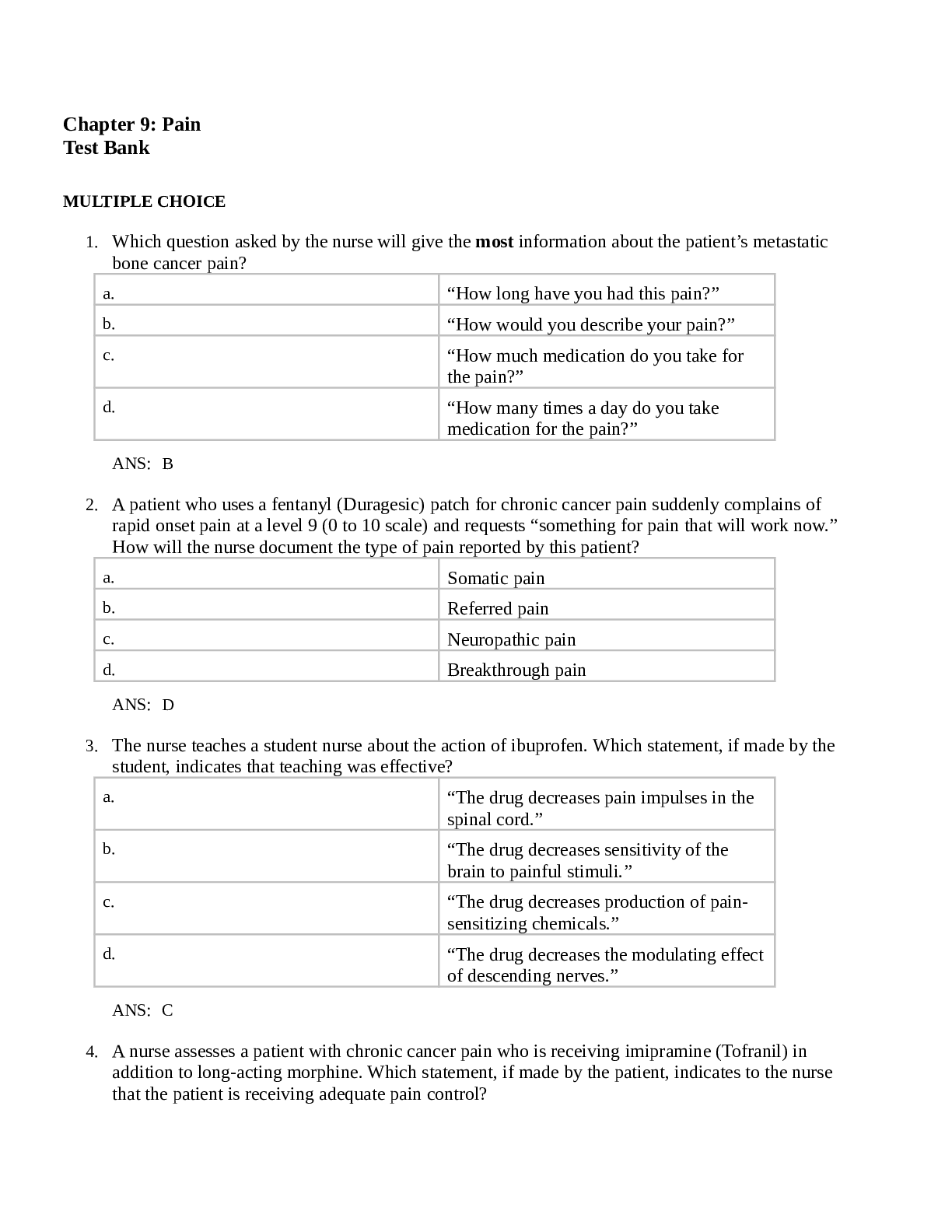



.png)

